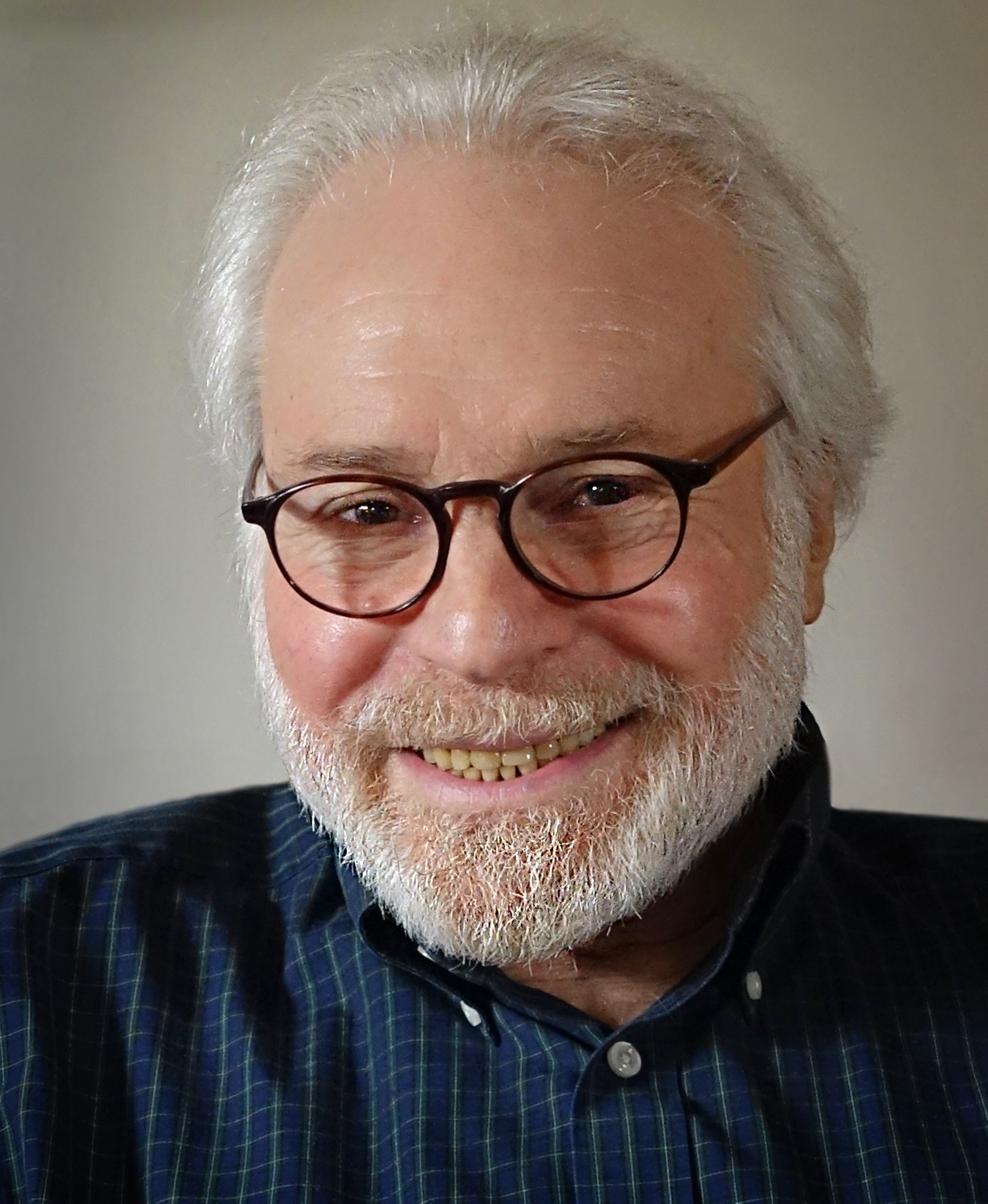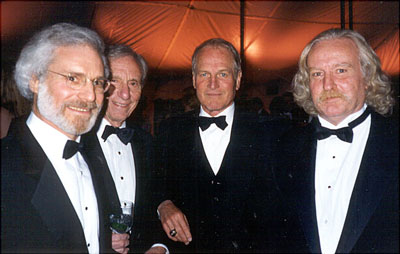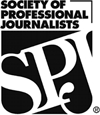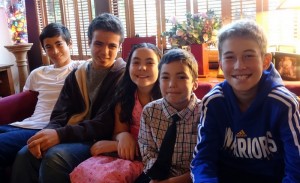Bio
 An advocate for press freedom and journalistic ethics and diversity
An advocate for press freedom and journalistic ethics and diversity
Peter Y. Sussman, 82, spent 29 years as an editor at the San Francisco Chronicle, leaving in 1993 to pursue an independent career writing and editing. He has continued to devote much of his time to journalism, as a freelance writer and editor, as a teacher and mentor, and – often through professional organizations – as an expert and advocate on issues related to press freedom and journalism ethics and diversity. He has received many local and national honors for his work, both before and since leaving the Chronicle. His most recent book, Decca: The Letters of Jessica Mitford, was published in October 2006 by Alfred A. Knopf in the United States and a month later by Weidenfeld & Nicolson in Britain. It was subsequently published as a paperback in Britain by Phoenix. Decca was widely acclaimed by critics on three continents.
Sussman’s first book, Committing Journalism: The Prison Writings of Red Hog, co-authored with onetime bank robber Dannie M. Martin, was published in 1993 by W. W. Norton, receiving favorable reviews in a number of magazines and newspapers, including The Washington Post. The paperback edition, published in 1995, also by W. W. Norton, has been in use in journalism, criminal justice and English classes around the country. It was selected by a faculty-student committee as the 1996-‘97 featured book in the campuswide College Book Program of Las Positas College in Livermore, Calif. All academic departments at the college studied issues raised by the book.
 At the Chronicle, Sussman held a variety of editing positions in both news and feature departments. For the 10 years before he left the newspaper, he was editor of Sunday Punch, a popular feature-and-commentary section. Previously he served as assistant news editor for many years and as editor of This World, a Sunday magazine supplement.
At the Chronicle, Sussman held a variety of editing positions in both news and feature departments. For the 10 years before he left the newspaper, he was editor of Sunday Punch, a popular feature-and-commentary section. Previously he served as assistant news editor for many years and as editor of This World, a Sunday magazine supplement.
Honors and Awards
Sussman won his first national journalism honor in 1978 when he was awarded a Professional Journalism Fellowship (since renamed Knight Fellowship) at Stanford University. He spent the 1978-’79 academic year at Stanford.
After Dannie Martin was punished by the federal prison system for an article of his that Sussman published in the Chronicle in 1988, the editor’s campaign to defend the First Amendment rights of both the convict-writer and the newspaper won him, Martin, and the Chronicle a variety of prestigious national and local awards. These include:
Media Alliance’s Elsa Knight Thompson Award for Special Achievement, 1988; James Madison Freedom of Information Award, Northern California Chapter, Society of Professional Journalists, 1989; Scripps Howard Foundation’s Edward Willis Scripps Award for Service to the First Amendment, 1989; Society of Professional Journalists’ national Freedom of Information Award, 1990; Bill Farr Freedom of Information Award, presented by the California Freedom of Information Committee and the California Society of Newspaper Editors, 1990; and the Brechner Center for Freedom of Information’s 1990 FOI award honorable mention (a category created specially to recognize the achievements of Sussman and Martin).
He and Martin were honored by the Prison Law Office in 1991 and received honorable mention for the 1992 James Aronson Award for Public Conscience Journalism from the Hunter College Department of Communications. They also received the Playboy Foundation’s Hugh M. Hefner First Amendment Award for print media in 1992 and the PEN/Newman’s Own First Amendment Special Citation in 1993.
PEN/Newman’s Own First Amendment Special Citation in 1993.
Although primarily an editor while at the Chronicle, Sussman also wrote periodic essays and news stories during those years for his paper and other publications, including the Christian Science Monitor, The Nation and the New York Times Book Review. Since leaving the newspaper he has written freelance articles and essays for a wide range of print and web publications and broadcasters, including Salon.com, Quill, the San Jose Mercury News, the Riverside Press Enterprise, the Contra Costa Times, the Cleveland Plain Dealer, the San Francisco Chronicle, Social Pathology, Alternet, Pacific News Service, Writing on the Edge and KQED-FM.
Independent Writing Projects
Among his writing projects since leaving the Chronicle were two foundation-financed reports. One, Three Strikes: The Unintended Victims, for the Center on Juvenile and Criminal Justice in San Francisco, profiled 10 people facing California’s new “three strikes and you’re out” penalty for minor felonies. Sussman was lead writer and project coordinator for the study. He was subsequently asked to write a similar report, Reaching for the Dream: Profiles in Affirmative Action, for a coalition of California civil rights organizations, profiling 13 Californians whose lives had been turned around by government affirmative action programs.
Sussman has been a frequent and pioneering spokesman for the news media’s First Amendment right to prison access. One of his speeches on the subject was reprinted as a chapter in Censored 1997: The News That Didn’t Make the News—The Year’s Top 25 Censored News Stories, by Peter Phillips and Project Censored (Seven Stories Press).
In early 1999, as Sussman was working on a magazine article, his advocacy and writings on prison media access resulted in a sweeping subpoena of his editorial, political, financial and other documents by the state Attorney General’s Office. He refused to comply on constitutional grounds, and the subpoena was withdrawn after a national outcry that included a number of editorials and columns in newspapers and on the web. He was subsequently awarded the California First Amendment Coalition’s Beacon Award (“Shield of Courage”) for “fighting the excesses of both the Department of Corrections and the Attorney General’s Office” in California.
He later wrote a chapter on media and prisons for an anthology entitled Invisible Punishment, edited by Marc Mauer and Meda Chesney-Lind and published in October 2002 by The New Press.
Sussman has taught journalism at California State University, Hayward, and San Francisco State University. Elsewhere, he has been a guest lecturer at classes, seminars and conferences. He has also been a volunteer writing coach/mentor at San Francisco State’s Center for the Integration and Improvement of Journalism and a consultant for writers and news organizations.
Advocacy
He has held a number of positions in the Society of Professional Journalists, the nation’s oldest, largest and most broadly based association of journalists. He was a 15-year member of the  Society’s national Ethics Committee and was a co-author of the organization’s 1996 Code of Ethics, which had generally been considered the primary ethics code for the profession for almost two decades. (The code was revised subsequently, in 2014, and he does not wish to have his name associated with that version.) He served for two years as president of the Northern California SPJ chapter and was also California co-chair of SPJ’s Project Sunshine, promoting freedom of information. As chapter president and continuing for a number of years thereafter, he was the Society’s point person in sponsoring legislation in Sacramento to reverse state Department of Corrections restrictions on face-to-face news media interviews with prisoners, and he oversaw SPJ’s participation in successful action in federal courts to overturn rules that curtailed the press’s longstanding right to witness executions in their entirety. As a member and then co-chair of SPJ’s Northern California Freedom of Information Committee, Sussman was active in successful campaigns to enact open-records and open-meeting laws in San Francisco and elsewhere in the state. He has been the Society’s spokesman on numerous journalism issues—judicial, legislative, and ethical.
Society’s national Ethics Committee and was a co-author of the organization’s 1996 Code of Ethics, which had generally been considered the primary ethics code for the profession for almost two decades. (The code was revised subsequently, in 2014, and he does not wish to have his name associated with that version.) He served for two years as president of the Northern California SPJ chapter and was also California co-chair of SPJ’s Project Sunshine, promoting freedom of information. As chapter president and continuing for a number of years thereafter, he was the Society’s point person in sponsoring legislation in Sacramento to reverse state Department of Corrections restrictions on face-to-face news media interviews with prisoners, and he oversaw SPJ’s participation in successful action in federal courts to overturn rules that curtailed the press’s longstanding right to witness executions in their entirety. As a member and then co-chair of SPJ’s Northern California Freedom of Information Committee, Sussman was active in successful campaigns to enact open-records and open-meeting laws in San Francisco and elsewhere in the state. He has been the Society’s spokesman on numerous journalism issues—judicial, legislative, and ethical.
The national Society of Professional Journalists presented Sussman in 1997 with the Howard S. Dubin Outstanding Professional Chapter Member Award and in 1999 with its highest honor, the Wells Key, given annually to the individual who has done the most to further the Society and its ideals. In bestowing the Wells Key, the Society cited his “instrumental” role in writing SPJ’s 1996 Code of Ethics and his advocacy of press freedoms and journalism diversity. The Northern California Chapter later honored him with the John Gothberg Award for meritorious service to the chapter, and at the 2014 James Madison Freedom of Information Awards dinner, he received the chapter’s Norwin Yoffie Career Achievement Award.
Beginning in 2002, Sussman wrote and lectured nationally on wartime journalism ethics. He has conducted a number of well-received workshops to reconsider journalists’ wartime ethical obligations, specifically in covering the so-called “War on Terror.” One product of the workshops was a proposed set of guidelines to resolve ethical conflicts in wartime. Workshop venues have included the University of Minnesota (Silha Center for the Study of Media Ethics and Law), Rutgers University and the national convention of the Society of Professional Journalists. In the spring of 2003, he made a presentation at the Stanford University Department of Communication’s Carlos McClatchy Memorial Symposium on“The Language of War and the Ethics of Journalism.”
For more than 13 years, beginning in 2009, Sussman was on the board of the Human Rights Defense Center, which publishes Prison Legal News and books on prisons and brings lawsuits challenging prison censorship and defending prisoners subjected to civil rights abuses. It also litigates for access to prison records that are kept secret illegally. He also served for more than five years on the board of The Center for Independent Living in Berkeley, which was the original independent living center, serving as a model for hundreds of such centers around the world; it pioneered many of the programs and advocacy initiatives for people with disabilities that we take for granted today.
He also volunteers as a journalism advisor for Street Spirit, the local homeless paper, and he has taken on volunteer projects with Ashby Village, a nonprofit cofounded by his wife, Patricia Carson Sussman, that is dedicated to helping older adults age independently in their own homes and communities. One project for Ashby Village was to produce a film (available to the public as a DVD) of poet Chana Bloch, months before her death, previewing for fellow Ashby Village members poems she had written during her four-year cancer journey. Those poems were published posthumously in the book “The Moon Is Almost Full.”
Personal Background
Sussman, who grew up in Manhasset, Long Island, graduated summa cum laude in English from Union College in Schenectady, N.Y. While at Union, he was selected as exchange fellow at St. Andrews University in Scotland for his junior year. As a senior, he was elected to Phi Beta Kappa and was class valedictorian. Shortly after graduation he moved to San Francisco.
He is a card-carrying member of the American Civil Liberties Union and a sweatshirt-wearing member of the Professional Organization of English Majors.
 Recently, he has pursued longtime interests in poetry and photography, and was among the photographers featured in the 2014 Ashby Village Juried Photo Exhibit at the LightRoom gallery and adjacent Tomate Cafe in Berkeley, Calif. A large solo exhibit of his photos, entitled “The Attentive Eye,” was on display from May to December 2022 at Alliant International University in Emeryville, Calif. (See https://www.peterysussmanphotos.com/ ). He gave a talk at the opening on the art on attentive seeing that can also be found online. More of his photos may be viewed on Flickr.
Recently, he has pursued longtime interests in poetry and photography, and was among the photographers featured in the 2014 Ashby Village Juried Photo Exhibit at the LightRoom gallery and adjacent Tomate Cafe in Berkeley, Calif. A large solo exhibit of his photos, entitled “The Attentive Eye,” was on display from May to December 2022 at Alliant International University in Emeryville, Calif. (See https://www.peterysussmanphotos.com/ ). He gave a talk at the opening on the art on attentive seeing that can also be found online. More of his photos may be viewed on Flickr.
A longtime resident of Berkeley, he is married to retired community healthcare administrator and consultant Patricia Carson Sussman and is the father of three grown daughters and the grandfather of seven wunderkinder of whom he is immensely proud.
Contact information:
E-mail: [email protected]
Phone/messages: (510) 872-0898
Facebook and Twitter: PeterYSussman
Skype: peterysussman
URLs:
Photos at https://www.flickr.com/photos/pysussman/
2022 photo exhibit at https://www.peterysussmanphotos.com/
“Attentive Eye” opening night talk